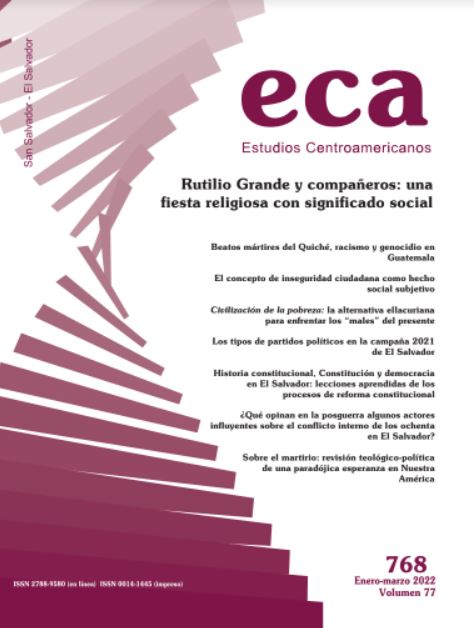Blessed Quiché martyrs, racism and genocide in Guatemala
DOI:
https://doi.org/10.51378/eca.v77i768.6666Keywords:
Beatification, Martyrdom, Genocide, Discrimination, LiberationAbstract
In the processes of liberation that the peoples of Latin America have experienced, many of the vindicating events have been the object of smear campaigns, with well-directed counterinsurgency intentions. It is important to deepen how the Catholic Church morally vindicates the spiritual, pastoral and social work of its leaders, especially those who have most influenced their commitment to the poor. The silence of the abuse, torture, ethnocide and genocide of indigenous communities in Guatemala has been extreme, and the option of the Catholic Church and other confessional civil and religious sectors identified with these causes have also been persecuted. With the declaration of Beatification of the Martyrs of Quiché, the acts of barbarism that have been hidden for more than 40 years, in the wakes of social and political disinformation concerned, are implicitly denounced. In addition, the counterinsurgency Protestant expansion that, unified with the official military policies of national security, attests to one of the greatest genocidal barbarities in recent history in Latin America. All this is faithfully documented, testimonially and bibliographically, in intellectual and religious spheres of importance, which, from a critical interpretation, both socially and culturally, becomes a clamorous cry, which activates the psychology of reparation and liberation with collective scope, by which the dreams and utopias of indigenous communities and movements that fight against inequality and economic asymmetries are renewed and cultural marginalization and exclusion.
ECA Estudios Centroamericanos, Vol. 77, No. 768, 2022: 15-32.
Downloads
Published
How to Cite
Issue
Section
License
Copyright (c) 2022 Julio César Molina

This work is licensed under a Creative Commons Attribution-NonCommercial-NoDerivatives 4.0 International License.









